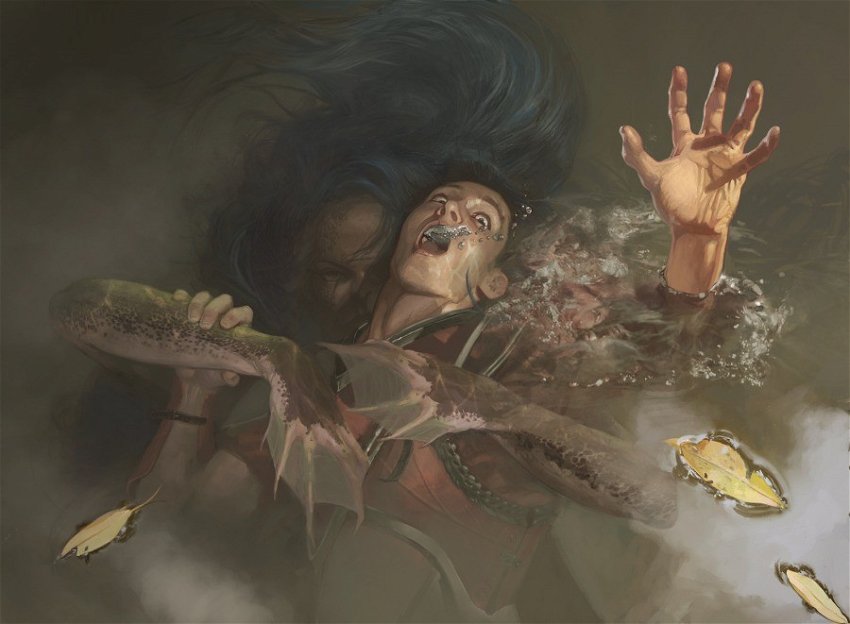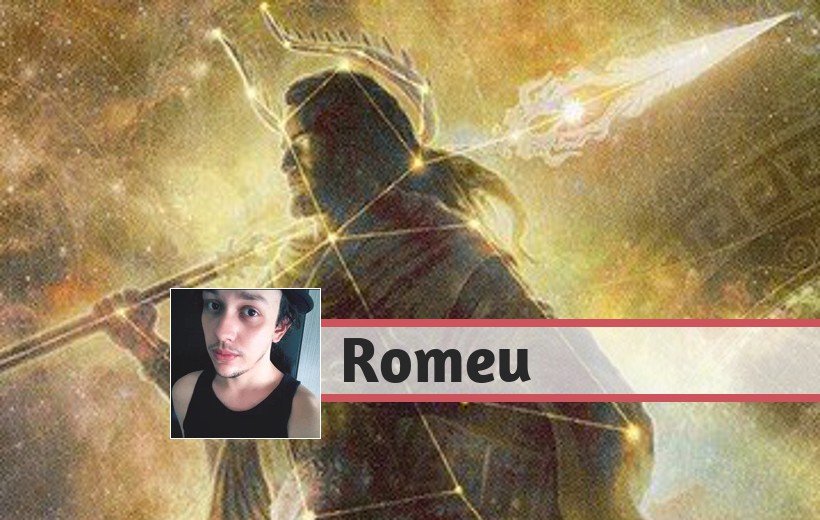Hello everyone!
This week, as I analyze the August's last challenges (which was a month with strong emotions, with new decks like Jund Food and a triumphant return of the Mono-Green Tron
), a specific deck caught my attention, a classic that exploits the rule that "when the player have to draw a card and the library has no more cards, that player loses the game".
Ad
Yes! Dimir Mill is showing up! In addition to recurring 5-0 in leagues, the Dimir deck managed to reach the Top 8 of the Saturday and Sunday Challenges with nearly identical decklists
Let's look at one of these lists and find out why apparently milling your opponent's cards is a good idea in the current scenario.
The List
Looking at the list, we already have very concrete evidence: this archetype has received a lot of support over the last few sets.
Starting with Throne of Eldraine, Drown in the Loch is one of the most versatile cards (and one of my favorites) from the current Metagame. By serving as a counterspell or removal, the card plays even in decks that do not use the Mill theme, but here we have a super optimized use of it, as the deck can easily provide a large enough range to even counter Tron's spells.

Zendikar Rising brought a strong Mill theme with Rogues, but who really stole the show in the archetype was Ruin Crab. Being almost a functional reprint of the Hedron Crab, this addition brought consistency to the deck, which now has access to eight one drops to its game plan.
Going through the special sets, Modern Horizons 2 came up with Fractured Sanity, a versatile and potent spell, being either a high quantity Mill, or a lower range Mill, but which almost cannot be countered and replenishes itself, being a valuable resource or even a finisher, depending on your need and amount of mana.

Finally, we have our latest addition to the current lists, Tasha's Hideous Laughter. This card is powerful in the contemporary metagame for two reasons:
Exiling the cards instead of milling them can be a small "nombo" with cards like Drown in the Loch and Surgical Extraction, but it's a small price to pay for the advantage in a format that plenty of lists are using the Graveyard as a resource, so you mess up cards like Lurrus of the Dream-Den and Snapcaster Mage a little, as well as not being too much punished by Dragon's Rage Channeler and Tarmogoyf ("too much" is the key word here, as it is impossible to avoid accelerating the plan of these cards).
The second point is that dealing with the Mana Value of the cards punishes (a lot) the low-curve decks, like the Grixis and Izzet Tempo, or also decks that use many lands, like the Amulet Titan.
All these advantages make Tasha's Hideous Laughter a mighty weapon for decks that want to exhaust their opponent's resources in one of the simplest ways, sending the cards from the library straight to the graveyard or exile.

But not only on new cards lives an archetype, and if all these additions are seeing play, it's because the deck already had a solid and consistent base, with cards like Archive Trap, which in the overwhelming majority of times will be cast for free, in addition to Visions of Beyond, which in this context will almost always function as an Ancestral Recall. All these cards manage to give an absurd gas to this deck.
Ad

Metagame Interactions
Well, now that we've covered the deck, I'm going to share some of the experience I had with the list at the Magic Online environment, where I played with the deck in several leagues and individual games.
A comparison I've heard a lot in my life is that "The Mill is a Burn for another purpose." I don't totally disagree with this statement, as both are not trying to generate value but rather end the game as soon as possible, but the fact that our deck has more reactive features and strategic advantages is the most significant difference here, and it's what gives us an advantage against the current decks, like the fact that Drown in the Loch and Fatal Push are key cards against Hammer Time and Burn, dealing with opposing threats long enough for a Tasha's Hideous Laughter to close the game or almost close the game.
Against the new Jund and Izzet Tempo the matchup is a little different; even with our disruptions helping us, the opponent also has interactions, not to mention the aforementioned Mill potentially advance the enemy's clock because of cards like Tarmogoyf and Dragon's Rage Channeler.
That said, we also have answers against graveyard-based strategies, especially since this particular list uses Soul-Guide Lantern, which is an interesting option both for recursion with Lurrus of the Dream-Den, and for clearing the opponent's graveyard, so the match becomes well-balanced, with resources exchanges, tempo plays and developing small advantages with each turn.
Against Crashing Footfalls and Living End, our Drown in the Loch shines again, as we can counter the opponent's winconditions easily, since they cost 0. The match against Living End, specifically, can be more dangerous as Mill quickly fill the opponent's graveyard, but with caution and the aid of Surgical Extraction on the sideboard (which the other list uses as maindeck), it's a generally smooth match.
Overall, the deck is really well positioned and has few predators, making it a great option even to tackle the metagame in a broader environment like Magic Online's leagues.
Alternatives to the list
After testing and observing several other lists, I have brought up some interesting options that can be beneficial for this deck.
Starting with two similar recursion options, Snapcaster Mage and Mission Briefing are two valid options that have different advantages, even if they do the same job. While one give you filtering with surveil and is more versatile in that it can cast the Archive Trap for its alternative cost, on the other hand, Snapcaster Mage is an interesting addition with Lurrus of the Dream-Den, which brings a higher level of recursion and grinding in longer games.

If you're looking for more interaction, Counterspell is a truly reliable option, as this deck has no difficulty generating two blue mana. While not accelerating the deck's plan, this option can be useful if you want a better matchup against Eldrazi Tron or Green Tron
Ad

For more card advantage, Into the Story is a great card to think about in some copies, drawing four cards at instant speed is a great deal for four mana, so along with Visions of Beyond, helping to keep the gas.

Conclusion
We saw today how various supports combined with a solid base can be beneficial to an archetype, which even makes us hope that our heart's tier 2 deck will one day see its place in the competitive scenario.
See you next time!









— Comentarios0
Se el primero en comentar